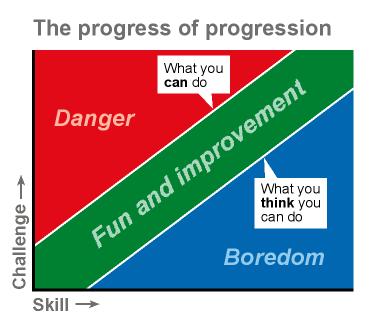Advice for an injury-prone dude
This was originally posted Sept. 13, 2004.
Our man Phil, 15, broke five bones in a year. Let’s see if we can help him.
Lee,
You’ve got a cool site and I enjoy reading all the entries. This is kind of a weird email but I just wanted to see what you thought of my situation.
I just broke my collarbone yesterday after getting out of my sling three weeks ago from another broken collarbone. This year I’ve broken 5 bones. I broke both my wrists and right AC joint exactly a year ago riding at Calabasas when I front wheel cased a jump. My parents limited me by not letting me race DH but I could still dirt jump and race at Sand Hill and stuff, which was fine by me.
Then last summer in July I was at De La Viega in Santa Cruz with my friends and I was trying the superheros table which is like a 30 foot gap. I nose cased it again and broke my collarbone. My parents got really pissed then and said I couldn’t go dirt jumping anymore but could still race slalom and mtx.
I was kind of mad but still OK because I have a slalom track in my backyard to practice on and there are lots of trails by me to ride. Then 3 weeks after getting my sling off, I was riding Saratoga Gap with my friends and broke my collarbone doing this little wallride thing that I’ve done hundreds of times before fine.
So now my parents are making me sell my Specialized SX I just built up, and I spent all last year saving up for, my Specialized P1 and any other biking related things I have. They won’t let me go biking until I move out of the house.
The reason I’m emailing you about this is because I just want to get an adult mountain bikers perspective on what I should do. Because so far every doctor has told my parents I should quit and they shouldn’t let me ride. This is really hard for me because mountain biking was the only thing I ever really had a passion to do and really wanted to commit to, but I can also understand my parents why they wouldnt want me to ride. They don’t want me to break my neck, which I totally understand.
Thanks for taking the time to read this. You don’t have to reply if you don’t want too, but if you could that would be great.
Thanks,
Phil, 15 years old
Phil, wow, that is quite an injury record.
Why do you think you get hurt? Are you pushing too hard? Not paying enough attention? Not wearing the proper gear?
— Lee
Hey thanks for replying.
I always wear a helmet and knee pads when I ride. It seems like a lot of the times when I’ve fallen its just been bad luck, or me just being too cocky. Like the time at Cali, I was following behind someone, but I was on a big dh bike. I didn’t think I’d have enough speed but I didn’t want to seem like a pussy so I just went for it.
Last July when I feel on the table in DeLa, the lip was all messed up, but I still wanted to try to clear the whole thing because I always thought it was impossible to fall on a tabletop, you know? I was pedaling like a mofo up to it and ended up going off the bad part of the lip which bucked me forward. Then last friday at Gap, I was doing a little wallride thing that I’ve done bunch of times before, but my friend was taking pictures so I wanted to do it as big as I could. I went up too high and ate it.
So it seems like most the time when I fall its when im just trying to show off or something. What do you think about all this? Could you tell me what you do to reduce injuries? Also if you have any ideas on what I could say to my parents so they’d let me ride again.
Phil
Phil, mountain biking will never be entirely safe. Stems break, tubes puncture, deer jump out of the bushes. Normal riders can expect a few crashes and the occasional minor injury, but five bones in a year — that’s madness.
Injuries suck
Injuries are no big deal to a 15-year-old. Muscles recover overnight. Bones heal in a few weeks. Your friends think you’re “core.”
Injuries suck for parents. Hospital trips cost money and time. And seeing you in pain costs emotional energy. Imagine how pissed they’d be if some adult bully beat you up and broke your arm. Now imagine how frustrating it is for them to watch you do this to yourself.
For the aging rider, injuries suck even more. I know this is hard to believe right now, but your body will become a wasteland by the time you hit your 30s. Want to play some baseball? Sorry, you can’t throw overhand because your rotator cuff is jacked. Want to get your doctorate in theoretical physics? Sorry, too many concussions. Dude, I know what I’m taking about here.
The thrill and the agony
I understand your parents’ desire to protect you from the sport (and yourself), but I also understand your passion. Mountain biking makes you strong and fit. It builds satisfying skills. And it’s a great way to learn more about yourself. I’ve been at it for 12 years, and in that time injuries have rocked me to my core. I woke up next to a creek once after I rode off course, hit a tree and almost drowned. When I realized what had happened, I was crying, “That’s it. I’m selling all my bikes and buying a bass boat.” I meant it: blue sparkle paint, fish finders, waterproof overalls and everything.
 |
Of course, once you get used to the rush of a sweet ride, there’s no going back. I’ve tried to “take it easy,” but that’s no fun. You see, the real fun of mountain biking comes from improvement. You have the most fun and progress the fastest when you ride in that boundary between what you think you can do and what you can actually do. Most people can do more than they think they can. Every time you venture into this mystery zone you teach yourself a new skill, and you get a super stoke. There is room to get infinitely better, and that, right there, is what makes mountain biking such a gratifying life-long sport.
Chart: Despite what you might think, the “What you can do” and “What you think you can do” text is not reversed. Most of us with sound skills and normal senses of self preservation are capable of doing more than we let ourselves do. How many times have you gone faster than usual and realized, “Whoa, that was rad. I’ll go that fast next time.”? In these cases you delve into the green zone. Daredevils like Phil ride in the red zone.
But you, you’re one of those people who tries to do things you can’t really do. As you and your parents know, that is a dangerous situation. The distinctions you have made between downhill, dirt jumping, slalom/4X and trail riding are arbitrary. When you ride above your abilities, any kind of riding can hurt you. You proved that by crashing at Saratoga Gap, pretty much the easiest trail in the South Bay.
As an emergency room physician, my dad has seen every kind of injury you can imagine. To keep me safe he banned me from skateboarding, motorcycles and even football. Of course, at 17 I bought a moto and kept it at my friend’s house. My parents didn’t know I rode until they got a call from Mercy Hospital in San Diego. I’d come up short on a big table and knocked myself into oblivion. I couldn’t speak correctly for months. I still don’t remember that day. I mention this for your parents: If your child is driven to test himself and experience thrills, he will find a way to do so. It’s better for him to do this with your knowledge and supervision than out on his own. Braap!
Don’t be an idiot
In my opinion, here are the keys to long-term progression and relative safety:
1. Know yourself. You need to honestly appraise your skills. Obviously, your jumping needs some work.
2. Build your skills gradually. It sounds like you like to nose-case jumps. Fix that problem. Ban yourself from big jumps until you can hit small jumps 1,000 times perfectly. Build sound foundations, then build on them. Step it up gradually. You have the rest of your life to get good. Tiny steps. Tiny.
3. Control yourself. You need the maturity to do this methodically. You’ve heard the adage, “If all your friends were jumping off a cliff, would you do it?” Apparently your current answer would be “yes.” You need to grow out of that. Become a man who sticks to his own plan. If the boys are busting a 30-foot jump you need the strength to say no thanks. If you can’t handle the peer pressure, try a different set of peers. If you ride with people at or below your level you might find it easier to control yourself.
By the way, these are life skills. Learn these now on your bike, before you start driving, before you get credit cards, before you go to bars and start waking up in strange towns.
If I were your parent I wouldn’t let you ride until you demonstrate that you can adhere to these three principles. Talk to your parents about them, and see what you can come up with.
Of course, none of us can watch you ride, so it comes down to you. Can you control yourself? Can you step up to being a man who doesn’t care what his buddies think? Can you commit to a long-term progression? If you can, then I think you should keep riding. If you can’t, if you insist on hurling yourself beyond your abilities, then I say get out of the sport before you hurt yourself worse.
If biking doesn’t work out, give bass fishing a try. They make it look really exciting on OLN.
Good luck, and let me know what happens.
— Lee
Added Sept. 15, 2004 …
Hey, your reply was really good. It really showed me how I need to know my abilities a lot better and not just huck stuff. I noticed the part about it being better to not always ride with people above your skill level. In my case many times the friends I ride with don’t try the stuff I try, but stand on the side watching or filming and encouraging me to go for it. It seems like a lot of times this is what gets me hurt. I don’t think the peer pressure is a problem as much as me just thinking that I’m better than I really am.
Thanks a lot for taking the time to reply to all my emails. My mom read the article and thought it was really good. She still says she hates mountain biking, but I’ll give it some time and sees what happens. She is a nurse and one thing she mentioned was nine mountain bikers from the Bay Area came in this summer with broken necks and all became quads (two were pro she said). So I can understand where shes coming from. Whatever ends up happening, you taught me a lot on how to use better judgement when doing high risk activities.
Hope to eventually see you at the trails.
-phil

Comments are closed.